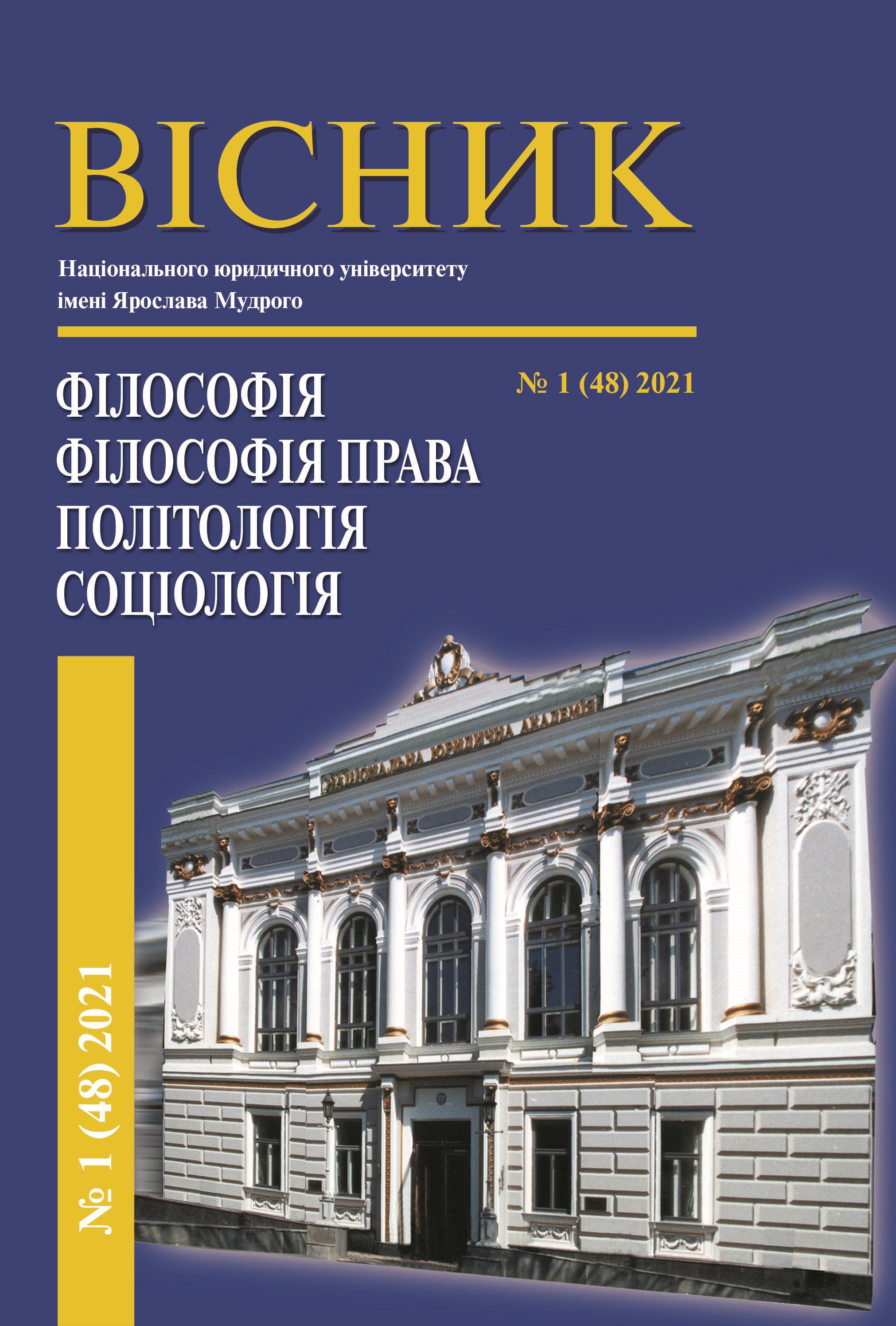РАЦІОНАЛЬНІСТЬ АРГУМЕНТАЦІЇ: ЛОГІЧНІ ПРАВИЛА ТА ЗНАЧЕННЯ
RATIONALITY OF ARGUMENTATION: LOGICAL RULES AND VALUES
Author(s): Olena Mykolaivna YurkevychSubject(s): Philosophy, Epistemology, Logic
Published by: Національний юридичний університет імені Ярослава Мудрого
Keywords: argumentation; rationality; discursive rationality; justification; logical rules; logical values; implication; the power of judgment;
Summary/Abstract: Problem setting. During the period of expansion of the practice of argumentation in society, thanks to the media, the theory of argumentation is also actively developing. In the process of interdisciplinary research and the influence of irrationalism, the problem of rethinking the rationality of argumentation, the conditions for its rationality to preserve the civilizational orientation of the development of modern society, arises.Recent research and publications analysis. At the present stage of development of the theory of argumentation, differences in the correctness and incorrectness of argumentation and proof are investigated, various concepts of the logic of argumentation, its role in communication, the rationality of the rules in argumentation as a characteristic of human rationality are proposed.Paper objective. The aim of the study is to reveal the reasons for the rationality of argumentation by analyzing the logical rules and values, their relationship in the construction of the structure of argumentation, the differences from the evidence.Paper main body. The rules for the structural elements of argumentation are divided into: rules of the thesis, rules of arguments and rules of demonstration. Arguments as bases in the structure of argumentation are connected with the thesis of causation. The logical rules of truth of implication establish a strict relationship between cause and consequence. Based on a certain rule, it is possible to obtain one or another logical value. It is in the peculiarity of causation that the difference in the argumentation in which it is modified lies. Modified argumentation changes the implicit connections. Logical rules and values are also implicitly related. If the logical meaning of truth in the traditional and classical sense represents the highest level of reason, which is identified with the perfect form, then the different derived values (probabilities, sufficiency, etc.) are associated with different types of rationality. An essential feature of rationality is the ability to justify. Rational reasoning related to speech contexts is crucial for argumentation. Contextual coherence and communicative nature allow us to generally determine the type of rationality of such an argument as discursive rationality. Different types of justification determine different types of rationality. The difference in the logic of argumentation appears as the difference in the conditions of the antecedent in implicit relations. The effectiveness of discursive rationality depends on the strength of judgments. The open nature of the argument means that there is no final rule; the rules are intersubjective; their establishment and choice requires strong-willed efforts and reflection, the involvement of the criteria of truth.Conclusions of the research. Analysis of modern research on the theory of argumentation shows a certain expansion of the possibilities of intelligent human activity in relation to the limited model of perfect pure reason according to the rules. But argumentation in its various forms is a rational activity connected with the logical criteria of truth. In this case, a significant difference between man as an intelligent being is justified through the awareness of rational activity that occurs according to certain rules.
Journal: Вісник НЮУ імені Ярослава Мудрого. Серія: Філософія, філософія права, політологія, соціологія
- Issue Year: 48/2021
- Issue No: 1
- Page Range: 70-81
- Page Count: 12
- Language: Ukrainian

